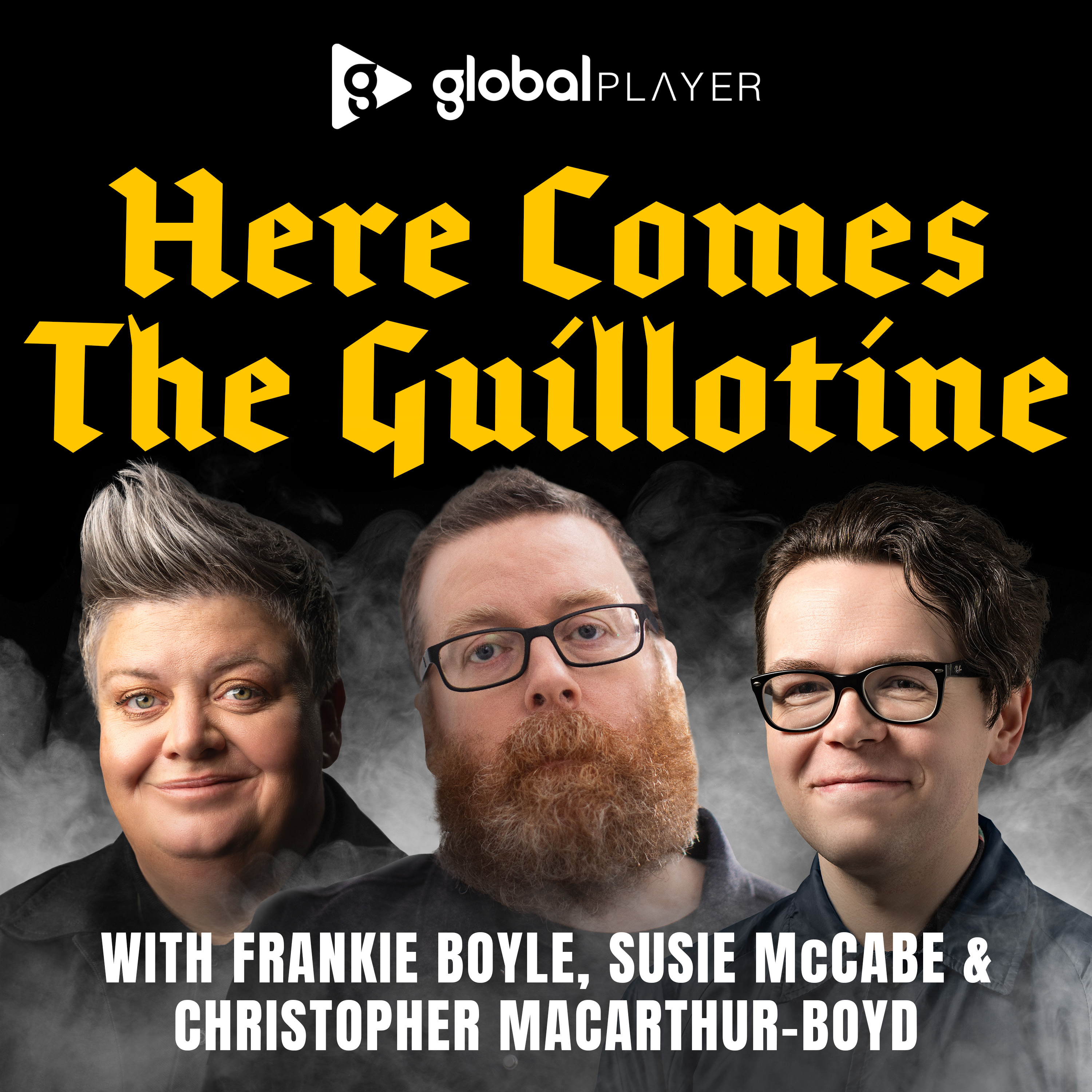Double Fist Pump
This podcast contains explicit language and adult themes that may not be suitable for all listeners.
In this episode of Here Comes The Guillotine, award winning Scottish comedians Frankie Boyle, Susie McCabe and Christopher Macarthur-Boyd chat about Lord of the Rings, Scottish Culture and publishing books...
Press play and read along
Transcript
Transcript is processing—check back soon.
Here Comes The Guillotine — Double Fist Pump
